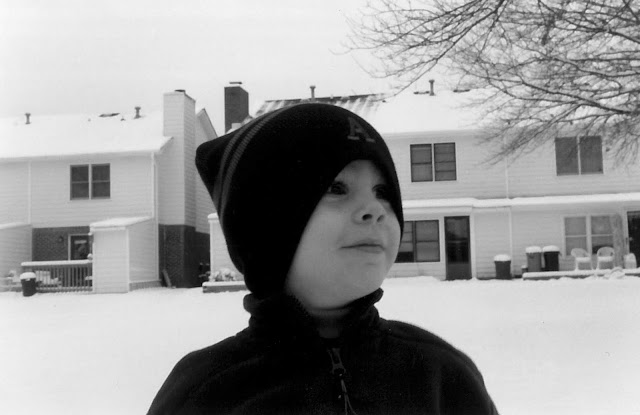KRR: So, 'Mangrove' is No Small Feat, Even if it's Meant for the Small Screen.
Let's talk about MFH - movies from home. Despite being a weak year for film, 2020 has also been a return to form in many ways. Charlie Kauffman confused the hell out of us with I'm Thinking of Ending Things, Christopher Nolan decided he wanted to upend the status quo (and safety of millions of people) by releasing Tenet in theaters, and, now, Steve McQueen - no, not that one - is back to doing what he does best: making excellent social dramas.
But just as 2020 has been a return to form, it has also been - as we are all aware - a very different year. McQueen's return is no exception. The 21st century's Steve McQueen, not to be confused with the King of Cool, is most renowned for his 2013 masterpiece 12 Years a Slave, a piece of high art that cuts so deep into American history it belongs in a museum. (It does not, however, belong on an airplane, which is where I first watched it, flying back from Costa Rica. Not a great airplane movie. I'd recommend it under any other circumstances.) After taking a detour to release the lukewarm crime thriller Widows in 2018, Steve McQueen has returned to the dramas that are his bread and butter, but just as 2020 is not normal, neither is his return. McQueen turned the moviegoing experience in quarantine - an experience on the small screen rather than the silver screen - into an art form, by bringing audiences five new films... in the form of a television series.
Small Axe is both Amazon Prime's newest television series and their newest (and most innovative) foray into the world of movie streaming. With the riches of the world's wealthiest man behind him, Steve McQueen developed Small Axe, a five-part series depicting the United Kingdom's West Indies communities through the latter half of the 20th century. Each part of that series just happens to be its own feature length film. Blessed are we for the return of Steve McQueen not once, not twice, but five different times.
Here we're going to cover just the first film in the series, Mangrove. Set in 1968-'69, Mangrove tells the true story of the Mangrove Restaurant, an establishment in Notting Hill - no, not that Notting Hill - that became the focal point of clashes between London's racist, xenophobic police force and the immigrant community they terrorized. These clashes ultimately led to a seminal court case: the Trial of the Mangrove Nine. McQueen tells the story of these Nine in one of the year's most affecting and deeply grounded works yet.
 |
| Shaun Parkes is truly a breakout star. |
Luckily, Frank Crichlow wasn't totally helpless. Alongside him in the fight for freedom from the oppressive police force are Altheia Jones-LaCointe (Letitia Wright), Darcus Howe (Malachi Kirby), and Barbara Beese (Rochenda Sandall). All of them were far more radical than Frank, and they're rightfully depicted as such. Altheia is the head of the local Black Panther chapter, an organization that Darcus and Barbara (a couple with a baby son) are leading members of. Behind these four are the rest of the Mangrove Nine, a group of defendants on trial not for rioting (despite what the prosecution says), but for being black.
 |
| I'd watch traffic court if Steve McQueen directed it. |
But that struggle, though brutal and disgusting and downright depressing, is also astonishingly beautiful. Mangrove is not a film about black struggles; it is a film about black beauty. There are silent scenes where the entire point is simply to watch the camera pan across the faces of the defendants, focusing on the features of black bodies that are often maliciously caricatured in pop culture: black noses, lips, ears, etc. McQueen knows to leave the camera trained on a certain aspect of a scene for a second longer than any other director would dare. In one of the film's earliest raids, a police officer storms through the restaurant's kitchen, knocking the dishes to the floor. Instead of following the ensuing chaos in the restaurant, the camera stays trained on a colander that has clattered to the floor, rocking back and forth, slowing down but never stopping. The metaphor - a strained community knocked over by the police - is a clear one, but it is no less powerful. These shots permeate the film. A rocking colander here, a close-up of a cigarette on black lips there, tracking shots that follow the character that isn't monologuing, too many directorial decisions to name. There is a certain artistry in the cinematography's simplicity that is as unexplainable as it is enticing.
 |
| We're in very good hands if Letitia Wright is the next Black Panther. |
Clearly, there's a lot to love about Mangrove and a litany of reasons to watch this beautiful movie, but there's also one staggering disappointment with it: It won't being competing at the Academy Awards. The trade off of Amazon Prime financing these five new films for Steve McQueen is that Small Axe will be competing against other television series, not films. And that's pretty disappointing, because Mangrove is one of the year's standout films. (As is Lovers Rock, episode two of Small Axe, but that's a different blog.) It won't get the opportunity to beat out Chicago 7 at the Oscars, because it won't be invited. Aaron Sorkin's wonderful mess will likely be remembered as the year's definitive, socially-critiquing courtroom drama, though it shouldn't be.




Comments
Post a Comment